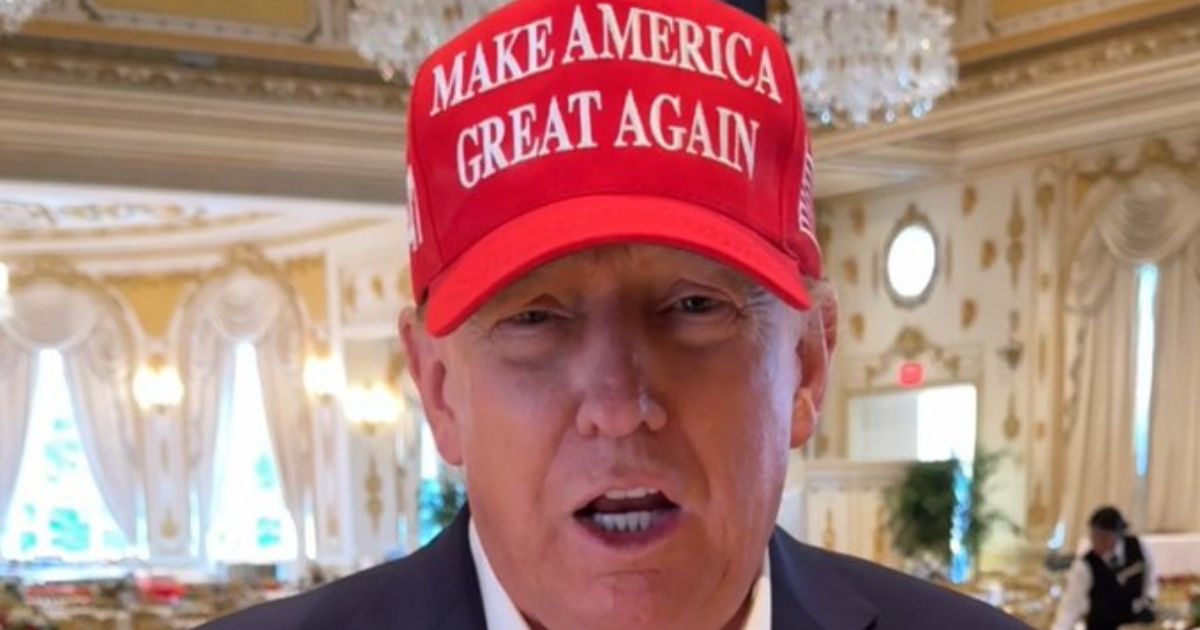The Chinese media has made fun of President Donald Trump’s MAGA as the US and China trade disputes over excessive tariffs continue to add chapters to their controversial book of cross-border tensions.
The media highlighted “a paradox in China-US relations under the Trump administration.” A Chinese factory has been making products for the Republican leader’s presidential campaigns since the rise of his 2016 “Make America Great Again” (MAGA) campaign, according to a resurfacing article from China 24 that CGTN referenced.
As the claims go viral, social media has erupted in a frenzy of anger. The post has come into the spotlight at a time when the US president is time and again emphasizing the requirement to “liberate the United States from its reliance on imported goods.”
It’s pretty funny how every Democratic campaign ties itself into knots sourcing all-union, Made in USA campaign merch because their base will light them on fire if they don’t, but MAGA hats have been made in bulk by Chinese factories since Day 1:pic.twitter.com/hW4g5KdTis
— Carolina Forward (@ForwardCarolina) April 14, 2025
US-China trade war in Present Times
Donald Trump introduced hefty levies this April, he presented an argument that his government wanted to promote domestic manufacturing and protect jobs. He even argued that “cheaters” have been taking advantage of the US, and foreigners have “pillaged” the country. Amidst the mounting demands, the United States’ relationship with China has only been dragged into the mud.
And it is equivalent to being hit where it hurts the most to be accused of depending on the “Made in China” narrative when he has imposed up to 145% tariffs on Chinese goods and China has responded with 125% on US goods.
MAGA merch is Made in China, Resurfaced video reminds Trump
The online video takes viewers back to a period when the MAGA leader’s 2020 presidential campaign preparations seemed to be well underway at a Chinese factory. Infinite streams of blue and white Trump banners for the election are being produced by Asian employees at Jiahao Flag Co.
Eventually, a female employee shares her perspective, stating that each employee is responsible for creating more than 1,000 Donald Trump banners every day. Banners for the US politician’s 2016 campaign are thought to have been produced at the same factory. Chinese laborers are also shown packing American flags, which are allegedly supplied at a cost of $1 per, in addition to producing Trump banners. “Even suppliers to the Trump campaign can’t resist a low price,” reported CGTN, an English-language news channel based in China.
The irony becomes even more apparent when the same report highlights Trump’s hypocrisy, including his call for his supporters to “buy and hire American” during a rally from years ago during his previous presidential campaign. In support of the resurgent Chinese media claims, Reuters also promoted a photo exhibition called “Trump flags: Made in China” back in 2018.
You’re a fool. All official MAGA hats are made in the USA. These tariffs will make the knock offs more expensive than American Made; validating tariffs work!
No more cheap Chinese knock offs! https://t.co/nyMoAnkngJ
— MAGS (@TAftermath2020) April 10, 2025
US-China trade war of the past
“The banners for President Donald Trump’s second-term campaign, emblazoned with the words “Keep America Great!” are made in China and soon could be hit by punitive tariffs of Trump’s own making as he ratchets up a rancorous trade dispute with Beijing,” states the trusted outlet at the time. Even at that time, the US-China trade war was the main topic, supporting statements about the “paradox” in the two countries’ relationship.
“They are preparing in advance, they are taking advantage of the fact that the tariffs haven’t gone up yet, with lower prices now,” Yao Yuanyuan, the flag factory manager said regarding the large number of banners and merchandise produced at the time. The Trump administration levied tariffs on $34 billion worth of Chinese imports as of July 2018.
According to Reuters, Washington announced duties on an extra $200 billion worth of goods in response to Beijing’s later reprisal. As the tariff conflicts come strangely full circle in 2025, the scenario is a startling rerun of the past.









